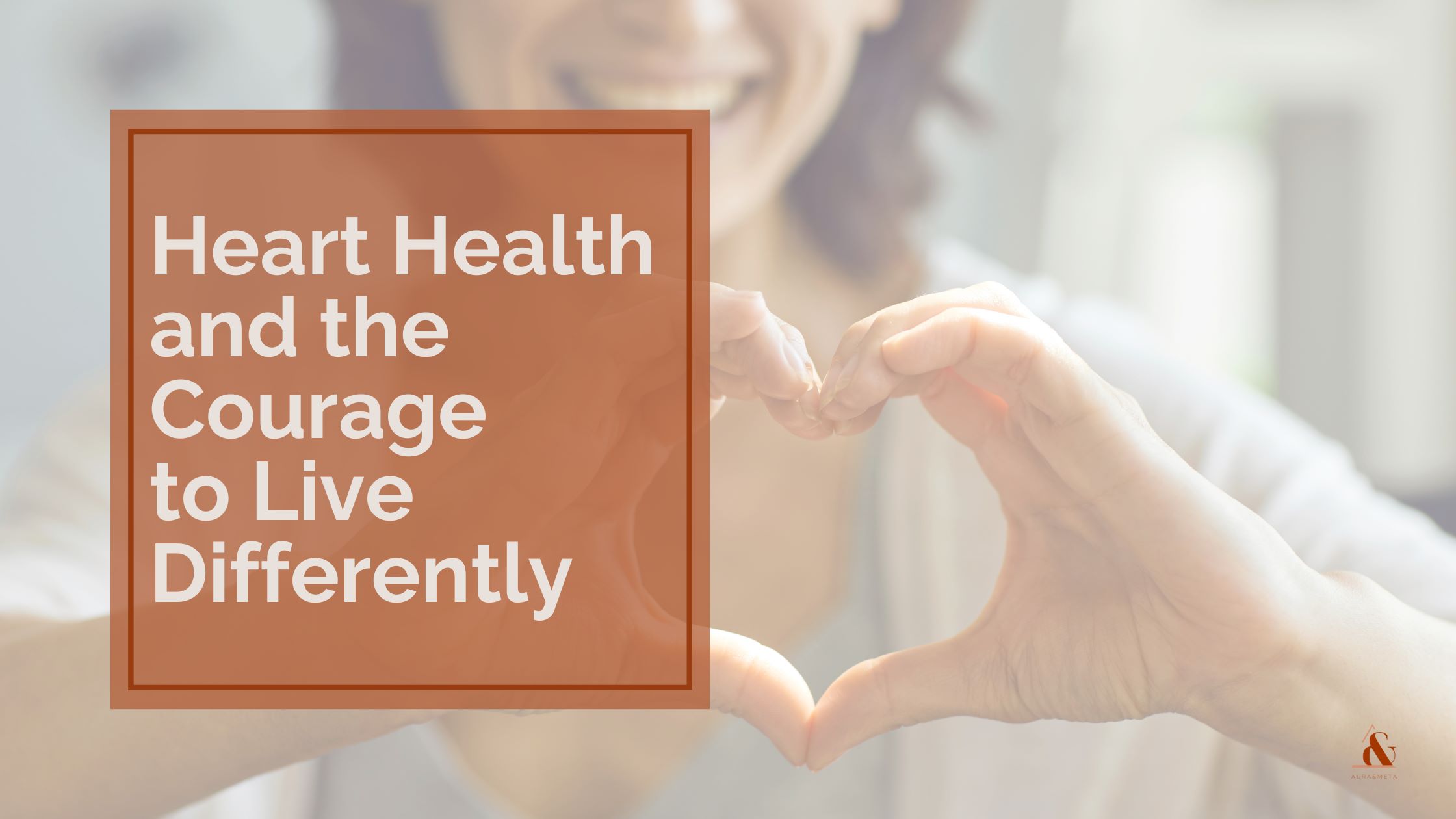The heart as muscle and metaphor
The heart is both a muscle and a metaphor. It sustains us with every beat, pumping oxygen and nutrients through our bodies, while also symbolising courage, joy, and the way we choose to live. For women in midlife, heart health is no longer an abstract concern. It is both a physical priority and a reminder to align life with what truly matters.
Cardiovascular risk in perimenopause
For decades, cardiovascular disease was often described as a male condition. Yet women in perimenopause and menopause face their own distinct risks. As oestrogen levels decline, its protective effect on blood vessels and cholesterol balance weakens. Oestrogen helps maintain flexible arteries, supports healthy levels of HDL (the “good” cholesterol), and modulates LDL (the “bad” cholesterol). When this balance shifts, risks of high cholesterol, hypertension, and arterial stiffness rise.
Progesterone, too, plays a role in fluid balance and vascular tone. Its decline may contribute to palpitations, blood pressure fluctuations, and changes in circulation. Together, these hormonal shifts make midlife a pivotal time to protect cardiovascular health.
The link between cholesterol and gallbladder health
Cholesterol often gets a bad reputation as only a heart risk marker, but in reality, it is an essential raw material in the body. Your hormones including oestrogen, progesterone, and cortisol are all built from cholesterol. Cholesterol is also a key ingredient in bile, the digestive fluid produced by the liver and stored in the gallbladder. Bile’s job is to help break down fats and carry waste products, including excess cholesterol, out of the body.
When cholesterol metabolism is out of balance whether from insulin resistance, inflammation, poor diet, or genetic variations like APOE, the bile can become too thick or sluggish. Instead of flowing freely, it may stagnate, which increases the risk of gallstones or “sludgy bile.” These issues are especially common in midlife women, as hormonal shifts in oestrogen and progesterone slow gallbladder contractions and alter cholesterol balance.
Supporting gallbladder function through a fibre-rich diet, adequate hydration, healthy fats, movement, and stress regulation keeps bile flowing smoothly. This not only helps digestion (especially of fats and fat-soluble vitamins) but also assists the body in managing cholesterol levels. In this way, gallbladder health is directly linked to cholesterol balance and, by extension, cardiovascular health.
Nutrition for a resilient heart
Food offers one of the most powerful ways to protect cardiovascular health during perimenopause and you can find multiple ways to enrich your diet.
- Colourful fruits and vegetables are rich in Antioxidants that help reduce inflammation and protect blood vessels.
- Omega-3 fatty acids, found in oily fish, walnuts, and flaxseeds; help reduce triglycerides and support arterial flexibility.
- Fibre-rich foods such as beans, lentils, oats, and leafy greens help regulate cholesterol and blood sugar levels.
- Magnesium and potassium are also vital for heart rhythm and blood pressure regulation, found in nuts, seeds, and green vegetables.
- Bitter foods: Rocket, dandelion greens, and artichoke stimulate bile flow, supporting both cholesterol balance and gallbladder health.
Lifestyle practices that matter
Lifestyle choices are equally vital in midlife heart health. Integrating them in your daily routine may have an impact on your heart health.
- Movement medicine: Resistance training, walking, swimming, and yoga strengthen both cardiovascular and musculoskeletal systems.
- Stress boundaries: Chronic stress elevates cortisol, raising blood pressure and undermining heart resilience. Creating space for rest, joy, and reflection is as important as exercise or diet.
- Restorative sleep: Poor sleep disrupts blood sugar and blood pressure regulation, increasing cardiovascular risk.
- Connection: Social connection and emotional wellbeing are protective factors for heart health, reminding us that vitality is not only physical but relational.
Genetics and Metabolic Testing: Personalizing Risk
Not everyone processes cholesterol in the same way. Your genes can strongly influence how your body handles fats and cholesterol. For example, the APOE gene comes in three common forms, E2, E3, and E4. People with one or two copies of the E4 variant often have a higher tendency to store cholesterol in the bloodstream instead of clearing it efficiently. This not only raises cardiovascular risk but can also make bile more “cholesterol heavy,” increasing the chance of gallstone formation.
Functional testing can shed light on these individual patterns. A comprehensive metabolic panel and advanced lipid testing can show how your body is handling sugar, fats, and inflammation, while genetic testing can reveal predispositions such as APOE variants or other markers linked to cholesterol metabolism. Together, these tests highlight where your system may need the most support, whether that’s optimizing digestion, balancing hormones, or reducing cardiovascular risk through targeted diet and lifestyle strategies.
The courage to live differently
The heart also asks us to live courageously. Midlife is often a time of re-evaluation, when old pressures, roles, and identities begin to shift. The courage to live differently means choosing alignment over expectation, joy over exhaustion, and authenticity over performance.
Protecting heart health is not only about lowering cholesterol or reducing blood pressure. It is about making choices that keep you connected to vitality, meaning, and the life you want to lead.
Food for thoughts
Heart health in perimenopause is both science and symbolism. Hormonal changes, cholesterol balance, and gallbladder health form the physical picture, while the deeper invitation is to live with courage and clarity. By nourishing the heart through food, lifestyle, and authentic choices, women can move into midlife with strength, resilience, and joy.

